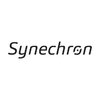Filter interviews by
Vialto Partners Interview Questions and Answers
11 Interview questions
A tax regime refers to the system of rules and regulations governing taxation in a specific jurisdiction.
Types of tax regimes include progressive, regressive, and flat tax systems.
In a progressive tax regime, higher income earners pay a larger percentage of their income in taxes (e.g., U.S. federal income tax).
A regressive tax regime imposes a higher burden on lower-income individuals (e.g., sales taxes).
Flat tax ...
TDS, or Tax Deducted at Source, is a tax collection mechanism where tax is deducted at the source of income.
TDS is applicable on various incomes like salaries, interest, and professional fees.
For example, if an employee earns a salary of $50,000, TDS may be deducted based on applicable tax rates.
TDS rates vary depending on the nature of income and the recipient's tax status.
It ensures a steady flow of revenue to t...
Lift testing involves assessing the functionality and safety of elevators or other lifting devices.
Conducting load tests to ensure the lift can safely carry its maximum capacity
Checking for proper operation of all controls and safety features
Inspecting the lift shaft and doors for any signs of wear or damage
Testing emergency stop procedures to ensure they function correctly
Testcases for testing a pen
Verify the pen writes smoothly on paper
Check the ink color matches the pen body
Test the pen cap fits securely
Ensure the pen clip is sturdy
Confirm the pen is comfortable to hold
GST stands for Goods and Services Tax, a value-added tax levied on most goods and services sold for domestic consumption.
GST is a consumption tax that is collected on the value added to goods and services at each stage of the supply chain.
It replaced multiple indirect taxes in India and aims to simplify the tax structure and reduce tax evasion.
GST has multiple tax slabs ranging from 0% to 28%, with different rates...
Residential status tax deductions are based on the taxpayer's status as a resident or non-resident for tax purposes.
Resident taxpayers are eligible for a wider range of deductions compared to non-resident taxpayers.
Deductions may include expenses related to housing, education, healthcare, and investments.
Non-resident taxpayers may have limited deductions available to them.
The residential status is determined based...
The old tax slab rates varied based on income levels and were different for individuals, HUFs, and senior citizens.
Tax slab rates for individuals: 0-2.5 lakhs (no tax), 2.5-5 lakhs (5%), 5-10 lakhs (20%), above 10 lakhs (30%)
Tax slab rates for HUFs: 0-2.5 lakhs (no tax), 2.5-5 lakhs (5%), 5-10 lakhs (20%), above 10 lakhs (30%)
Tax slab rates for senior citizens: 0-3 lakhs (no tax), 3-5 lakhs (5%), 5-10 lakhs (20%),...
Filing income taxes involves gathering necessary documents, completing tax forms, and submitting them to the appropriate tax authority.
Gather all relevant documents such as W-2 forms, 1099 forms, and receipts.
Choose the appropriate tax form based on your filing status (e.g., 1040, 1040A, 1040EZ).
Fill out the tax form accurately, including income, deductions, and credits.
Calculate your tax liability or refund using...
Depreciation is the allocation of the cost of an asset over its useful life.
Depreciation is a non-cash expense that reflects the decrease in value of an asset over time.
It is used to spread out the cost of an asset over its useful life for accounting and tax purposes.
Common methods of calculating depreciation include straight-line, double declining balance, and units of production.
Examples of depreciable assets in...
Different types of Income Tax Returns (ITRs) cater to various taxpayers, each with specific implications for filing and compliance.
ITR-1: For individuals with income up to ₹50 lakh from salary, one house property, and other sources. Example: Salaried individuals.
ITR-2: For individuals and Hindu Undivided Families (HUFs) not having income from business or profession. Example: Freelancers with capital gains.
ITR-3: F...
Vialto Partners Interview Experiences
27 interviews found
(2 Questions)
- Q1. Technical questions were asked
- Q2. Introduction and personal skills were asked
(2 Questions)
- Q1. Job related questions
- Q2. Technical ques and policy
(2 Questions)
- Q1. Process related
- Q2. Technical question and policy
I applied via Campus Placement and was interviewed in Mar 2024. There were 2 interview rounds.
There was an aseesement and the questions was on logical reasoning, aptitude and English skill
(5 Questions)
- Q1. Explain about the Residential status tax deductions
- Ans.
Residential status tax deductions are based on the taxpayer's status as a resident or non-resident for tax purposes.
Resident taxpayers are eligible for a wider range of deductions compared to non-resident taxpayers.
Deductions may include expenses related to housing, education, healthcare, and investments.
Non-resident taxpayers may have limited deductions available to them.
The residential status is determined based on t...
- Q2. Tell me the old tax slab rates
- Ans.
The old tax slab rates varied based on income levels and were different for individuals, HUFs, and senior citizens.
Tax slab rates for individuals: 0-2.5 lakhs (no tax), 2.5-5 lakhs (5%), 5-10 lakhs (20%), above 10 lakhs (30%)
Tax slab rates for HUFs: 0-2.5 lakhs (no tax), 2.5-5 lakhs (5%), 5-10 lakhs (20%), above 10 lakhs (30%)
Tax slab rates for senior citizens: 0-3 lakhs (no tax), 3-5 lakhs (5%), 5-10 lakhs (20%), abov...
- Q3. What is GST and explain the same.
- Ans.
GST stands for Goods and Services Tax, a value-added tax levied on most goods and services sold for domestic consumption.
GST is a consumption tax that is collected on the value added to goods and services at each stage of the supply chain.
It replaced multiple indirect taxes in India and aims to simplify the tax structure and reduce tax evasion.
GST has multiple tax slabs ranging from 0% to 28%, with different rates for ...
- Q4. Tell me about yourself
- Q5. Why are you choosing Tax role
- Ans.
A tax role offers the opportunity to navigate complex regulations and help individuals and businesses optimize their tax strategies.
Interest in Tax Law: I find tax regulations fascinating and enjoy staying updated on changes that impact individuals and businesses.
Problem-Solving Skills: Tax roles require analytical thinking to identify tax-saving opportunities; for example, I helped a family maximize deductions during ...
I appeared for an interview in Sep 2024, where I was asked the following questions.
- Q1. Itr types and implication
- Ans.
Different types of Income Tax Returns (ITRs) cater to various taxpayers, each with specific implications for filing and compliance.
ITR-1: For individuals with income up to ₹50 lakh from salary, one house property, and other sources. Example: Salaried individuals.
ITR-2: For individuals and Hindu Undivided Families (HUFs) not having income from business or profession. Example: Freelancers with capital gains.
ITR-3: For in...
- Q2. Tax Liability Calculation
Interview Preparation Tips
I appeared for an interview in Oct 2024, where I was asked the following questions.
- Q1. What is tds
- Ans.
TDS, or Tax Deducted at Source, is a tax collection mechanism where tax is deducted at the source of income.
TDS is applicable on various incomes like salaries, interest, and professional fees.
For example, if an employee earns a salary of $50,000, TDS may be deducted based on applicable tax rates.
TDS rates vary depending on the nature of income and the recipient's tax status.
It ensures a steady flow of revenue to the go...
- Q2. Explain tax regime
- Ans.
A tax regime refers to the system of rules and regulations governing taxation in a specific jurisdiction.
Types of tax regimes include progressive, regressive, and flat tax systems.
In a progressive tax regime, higher income earners pay a larger percentage of their income in taxes (e.g., U.S. federal income tax).
A regressive tax regime imposes a higher burden on lower-income individuals (e.g., sales taxes).
Flat tax regim...
I applied via LinkedIn and was interviewed in Jan 2024. There were 3 interview rounds.
(2 Questions)
- Q1. Screening via phone
- Q2. Lots of behavioural questions
(2 Questions)
- Q1. Questions about taxation
- Q2. How to file income taxes
- Ans.
Filing income taxes involves gathering necessary documents, completing tax forms, and submitting them to the appropriate tax authority.
Gather all relevant documents such as W-2 forms, 1099 forms, and receipts.
Choose the appropriate tax form based on your filing status (e.g., 1040, 1040A, 1040EZ).
Fill out the tax form accurately, including income, deductions, and credits.
Calculate your tax liability or refund using the ...
(1 Question)
- Q1. Fit questions b
I applied via LinkedIn and was interviewed in Aug 2023. There were 3 interview rounds.

Basic Quantitative and Verbal aptitude was checked. Listening, comprehending, interpreting and speaking skills were checked thoroughly (English).
(7 Questions)
- Q1. Basic accounting and taxation concepts were asked. Interview was short. Interviewer wanted precise answers.
- Q2. Define depreciation
- Ans.
Depreciation is the allocation of the cost of an asset over its useful life.
Depreciation is a non-cash expense that reflects the decrease in value of an asset over time.
It is used to spread out the cost of an asset over its useful life for accounting and tax purposes.
Common methods of calculating depreciation include straight-line, double declining balance, and units of production.
Examples of depreciable assets include...
- Q3. Heads of income according to IT act of India
- Q4. Golden rule and its applications
- Ans.
The golden rule in taxation states that taxpayers should pay taxes in proportion to the benefits they receive from government services.
The golden rule emphasizes fairness and equity in taxation.
It suggests that those who benefit the most from government services should pay the most taxes.
The rule is often used to justify progressive taxation systems.
For example, higher income individuals may be required to pay a higher...
- Q5. Amortization and depreciation
- Q6. Mathematical aptitude was checked
- Q7. Verbal communication was tested
Interview Preparation Tips
- Income Tax
- Finance
- Accounting
Be thorough with your financial literacy.
Be confident of your qualifications.
Communicate clearly and do not hide your future plans.
Show enthusiasm.
If you do not know an answer to any question, humbly ask for forgiveness and assure that you'll definitely check it and be prepared before you meet the next time.
I applied via Walk-in and was interviewed in Apr 2024. There was 1 interview round.
(2 Questions)
- Q1. Why do you want to work with vialto
- Ans.
I am drawn to Vialto for its innovative approach to tax consulting and commitment to client success in a global landscape.
Vialto's reputation for excellence in tax consulting aligns with my professional values.
The opportunity to work with diverse clients across various industries excites me, as it allows for continuous learning.
I admire Vialto's focus on leveraging technology to enhance tax solutions, which resonates w...
- Q2. Can you work in flexible shifts
- Ans.
Yes, I am able to work in flexible shifts to accommodate the needs of the job.
I have experience working in flexible shifts in my previous roles.
I am willing to adjust my schedule to meet the demands of the job.
I understand the importance of being available during peak times, even if it means working non-traditional hours.
Interview Preparation Tips
(2 Questions)
- Q1. How do u test lift
- Ans.
Lift testing involves assessing the functionality and safety of elevators or other lifting devices.
Conducting load tests to ensure the lift can safely carry its maximum capacity
Checking for proper operation of all controls and safety features
Inspecting the lift shaft and doors for any signs of wear or damage
Testing emergency stop procedures to ensure they function correctly
- Q2. Write testcases for testing a pen
- Ans.
Testcases for testing a pen
Verify the pen writes smoothly on paper
Check the ink color matches the pen body
Test the pen cap fits securely
Ensure the pen clip is sturdy
Confirm the pen is comfortable to hold
Skills evaluated in this interview
I applied via Recruitment Consulltant and was interviewed in Sep 2023. There were 5 interview rounds.

Basic questions were asked
(2 Questions)
- Q1. Questions based on self introduction.
- Q2. Introduce yourself
(1 Question)
- Q1. Questions related to the required post
Questions based on taxation and accounting.
Top trending discussions






Vialto Partners Interview FAQs
The duration of Vialto Partners interview process can vary, but typically it takes about less than 2 weeks to complete.
Tell us how to improve this page.
Vialto Partners Interviews By Designations
- Vialto Partners Tax Specialist Interview Questions
- Vialto Partners Tax Associate Interview Questions
- Vialto Partners Senior Associate Interview Questions
- Vialto Partners Associate Interview Questions
- Vialto Partners Tax Intern Interview Questions
- Vialto Partners Senior Payroll Executive Interview Questions
- Vialto Partners Manager Interview Questions
- Vialto Partners Team Manager Interview Questions
- Show more
Interview Questions for Popular Designations
- Tax Specialist Interview Questions
- Tax Associate Interview Questions
- Associate Interview Questions
- Senior Associate Interview Questions
- Sales Executive Interview Questions
- Associate Software Engineer Interview Questions
- Java Developer Interview Questions
- Senior Software Engineer Interview Questions
- Show more
Overall Interview Experience Rating
based on 30 interview experiences
Difficulty level
Duration
Interview Questions from Similar Companies
Vialto Partners Reviews and Ratings
based on 175 reviews
Rating in categories
3-6 Yrs
₹ 8-14.7 LPA
|
Tax Associate
142
salaries
| ₹6 L/yr - ₹8.5 L/yr |
|
Senior Associate
139
salaries
| ₹9 L/yr - ₹15.3 L/yr |
|
Associate
133
salaries
| ₹6 L/yr - ₹13 L/yr |
|
Manager
93
salaries
| ₹21.9 L/yr - ₹39.4 L/yr |
|
Tax Specialist
90
salaries
| ₹2.5 L/yr - ₹5.5 L/yr |

BYJU'S

Vodafone Idea

Tata Projects

Indiamart Intermesh
- Home >
- Interviews >
- Vialto Partners Interview Questions











